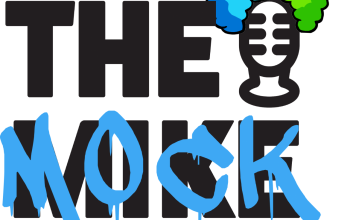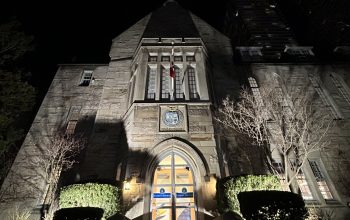Photo Credit: Maria Kotob, The Mike Photographer
USMC sponsored program launches late 2019
Lorenzo Canneri, The Mike Staff Contributor
The University of St. Michael’s College’s (USMC) sponsored Media Ethics Lab (MEL) launched in late 2019 with Professor Paolo Granata leading the lab. Granata is an Assistant Professor in the USMC Book and Media Studies program and Vice President of the Media Ecology Association (MEA).
The MEL has also received a grant from Advancing Teaching and Learning in Arts and Science (ATLAS). ATLAS is a grant from the University of Toronto’s (U of T) Faculty of Arts and Science. Its list of associate partner organizations goes beyond academia to include the Mozilla Foundation, the Centre for International Governance Innovation (CIGI), and the Canadian Commission for the United Nations Educational, Scientific, and Cultural Organization (UNESCO).
The MEL was created after the international conference “Media Ethics: Human Ecology in a Connected World.” This conference took place in June earlier this year at U of T. Granata chaired the conference and created MEL as a response.
“The Media Ethics Lab is being started not only as a research project but also as an opportunity for experiential learning,” says Granata.
The lab will act as an extension to Granata’s own Book and Media Studies course and will provide the training and mentoring needed for the students participating. Students working on the Lab will serve as research assistants; they will conduct background reading and participate in discussions to come up with research questions and create dossiers on their findings.
“The Media Ethics lab is a research hub that studies the way that digital media practices and emerging technologies are marked by ethical issues and decisive political, societal, and cultural questions,” the MEL website reads.
The Lab focuses on exploring how information and communication technologies can help enact positive social change. “The internet is polluted, but it should be a place where people can go and grow. Discussions on media ethics can help restore health,” Granata explains. He goes on to add that there needs to be new thinking on how to stop corporate behaviour that is detrimental to society.
MEL will focus on three core areas: digital equity, or creating equitable, inclusive communities for all; the digital city, focusing on designing people-centred information systems; and digital literacy, looking at helping communities develop skills to carry them forward into the 21st century.
The Lab will include periodic charrette sessions, and intensive brainstorming meetings where discussions are held on identifying benefits and challenges of the current digital media landscape in an effort to make improvements. A report on its first charrette session has been posted on its site and was published by MEL in partnership with George Brown College’s Institute without Boundaries. The charrette series is “aiming to serve as the springboard for a larger media ethics dialogue,” as stated by the report. The Lab will be built upon open research with information shared by a diverse group, from students to media activists and organizations.
The students involved in the MEL will post onto the media ethics website, www.mediaethics.ca, both scholarly and non-scholarly publications. Granata’s research assistants Kelsey Mcgillis, Alexandra Katz, and David Lee, are all U of T students in the Book and Media Studies program. Granata also has two research associates involved in MEL: Simon Rugby from Quest University and Robert Bertuzzi from Western University.
MEL will also be assisting the United Nations (UN). “All of the Media Ethics Lab’s efforts are also done in support of the UN’s sustainable development goals (SDG),” Granata states. In 2015, all UN member states adopted the 2030 Agenda for Sustainable Development and included in the agenda are 17 SDGs focused around seven key themes: water, energy, climate, oceans, urbanization, transport, and science and technology. The MEL will help achieve the SDGs by putting an effort into better understanding and improving digital realms such as digital cities, equity, and literacy.
The Lab will focus on four goals in particular: reduced inequalities, sustainable cities and communities, quality education, and partnerships.




